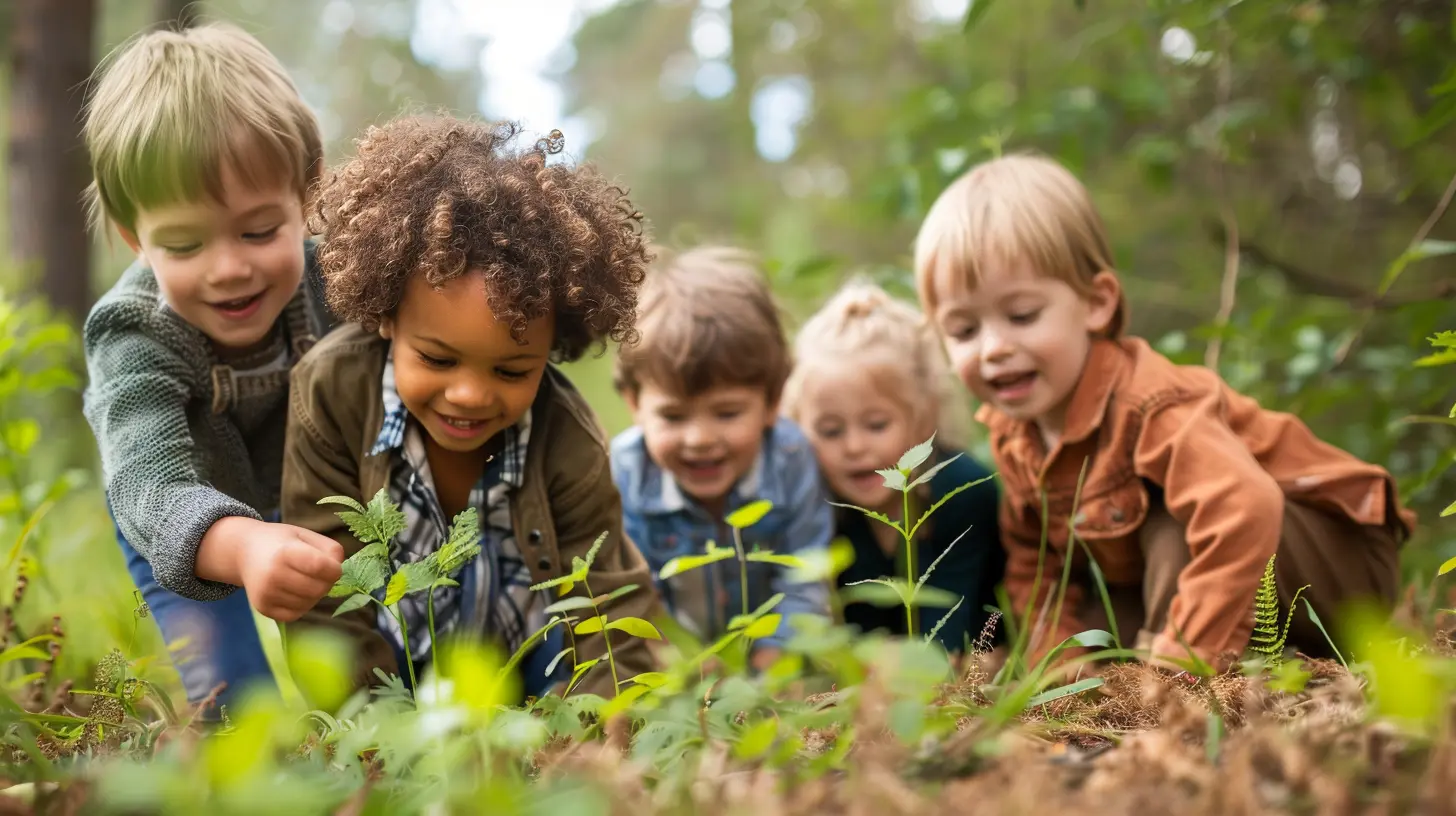The Benefits of Nature-Based Learning in Early Childhood
13 June 2025
Ever watched a child running through a park, collecting leaves, climbing trees, and chasing butterflies with pure joy? That’s nature-based learning at its finest. It’s more than just playtime outdoors—it’s a powerful approach to education that nurtures curiosity, creativity, and confidence in young learners.
In a world where screens dominate and structured learning takes center stage, giving children the freedom to explore nature is like handing them a key to endless learning opportunities. But why is nature-based learning so beneficial for early childhood development? Let’s dive in!

What is Nature-Based Learning?
Nature-based learning, also known as outdoor or environmental education, is an approach that encourages children to interact with nature as a core part of their learning process. Whether it’s a structured lesson in a forest school or free play in a backyard, nature becomes the classroom, and the natural world becomes the teacher.It's not just about science lessons in the garden; it’s about fostering problem-solving skills, independence, and resilience. Kids learn best through hands-on experiences, and nature provides the perfect setting for that discovery.

Why Nature-Based Learning is Essential for Young Children
Children are naturally curious—constantly touching, smelling, and exploring their surroundings. Imagine replacing plastic toys with mud pies, worksheets with bug-hunting, and screen time with endless outdoor adventures. The benefits are incredible!1. Boosts Physical Development
Running on uneven terrain, climbing logs, balancing on rocks—nature provides a full-body workout without kids even realizing it. Outdoor play strengthens muscles, improves coordination, and enhances fine and gross motor skills.Unlike indoor play, where movement is often restricted, nature allows children to jump, crawl, and stretch freely. This kind of physical activity lays the foundation for healthy growth and motor development.
2. Enhances Cognitive Skills
Nature presents endless challenges that make kids think on their feet. How do I cross this stream without getting wet? What happens if I stack these rocks too high? These little moments help develop problem-solving abilities, critical thinking, and decision-making skills.Studies show that children who engage in outdoor learning show improved focus, memory retention, and creativity. Nature stimulates their senses and helps them make real-world connections that traditional classrooms often miss.
3. Encourages Creativity and Imagination
The best thing about nature? It doesn’t come with instructions! A pile of sticks can become a castle, a fallen tree can be a pirate ship, and a simple puddle can turn into an ocean of possibilities.Unlike structured indoor activities, nature-based learning gives children the freedom to create their own games and stories, enhancing their imaginative thinking. It’s like giving them an unlimited canvas to paint their ideas on.
4. Supports Emotional and Social Development
Ever noticed how peaceful a walk in the woods feels? Nature has a calming effect, and this applies to kids too. Spending time outdoors reduces stress, anxiety, and even symptoms of ADHD.Plus, nature-based learning often involves teamwork—building forts, going on scavenger hunts, or working together to find insects. These activities teach patience, cooperation, and communication, helping kids develop strong social skills.
5. Builds Resilience and Confidence
Nature isn’t always predictable. Sometimes it rains, the wind blows too hard, or a climbing attempt doesn’t go as planned. But these little struggles help children become resilient.When kids face challenges outdoors—like figuring out how to climb a tree or navigate a rocky path—they learn persistence and adaptability. Overcoming these hurdles builds confidence and a strong sense of self-esteem.
6. Instills a Love for the Environment
It’s hard to care about something you’ve never experienced. Kids who spend time in nature develop a deep connection with the environment, making them more likely to respect and protect it as they grow.They start asking questions like, “Why do bees matter?” or “What happens if we cut down trees?”—curiosities that spark a lifelong appreciation for nature and a sense of environmental responsibility.

How to Incorporate Nature-Based Learning in Daily Life
You don’t need a forest to give children nature-based learning experiences. A backyard, a park, or even a balcony with plants can do wonders. Here’s how you can integrate nature into daily learning:1. Take Learning Outdoors
Instead of reading indoors, grab a blanket and read under a tree. Practice counting with leaves or teach colors using flowers. Simple tweaks like these make learning more engaging.2. Encourage Unstructured Outdoor Play
Let kids explore freely without structured activities. Give them time to create their own adventures, whether it’s digging in the dirt, collecting rocks, or watching birds.3. Start a Small Garden
Planting and growing fruits, vegetables, or flowers teaches responsibility, patience, and the science behind plant life. Plus, it’s rewarding for kids to see their efforts bloom—literally!4. Go on Nature Walks
A simple walk in the park can turn into a learning journey. Observe insects, identify different leaves, or listen to birds chirping. These small experiences make a big impact on a child’s understanding of the natural world.5. Build a Nature Craft Station
Use natural materials like twigs, leaves, and pebbles for fun art projects. Making leaf rubbings or painting rocks helps kids combine creativity with their outdoor experiences.6. Visit Farms, Zoos, or Nature Reserves
Being around animals and seeing how ecosystems work firsthand helps deepen a child’s appreciation for nature. Bonus: it’s a fantastic way to combine fun with learning!7. Let Kids Get Messy
Mud, water, sand—let them dig, splash, and explore. Sensory experiences like these help with cognitive growth and fine motor skill development.
Final Thoughts
In a world where early childhood education is leaning more towards structured learning and digital devices, nature-based learning reminds us that sometimes the best classroom has no walls. It’s about discovery, imagination, and letting kids be kids.The benefits aren’t just academic—they shape children into resilient, confident, and mindful individuals who appreciate the beauty of the world around them. So, let’s step outside, take a deep breath, and give our little ones the childhood they deserve—the one filled with dirt-covered hands, butterfly chases, and endless adventures in nature.
all images in this post were generated using AI tools
Category:
Early Childhood EducationAuthor:

Madeleine Newton
Discussion
rate this article
2 comments
Jonah Black
Who knew that mud pies and leaf crowns could be the secret recipe for genius? Nature-based learning turns tiny tots into budding Einsteins while they frolic with frogs and negotiate the great worm trade!
June 14, 2025 at 3:03 AM

Madeleine Newton
Absolutely! Nature-based learning sparks creativity and critical thinking in young children, fostering their development while they play and explore. It's amazing how simple outdoor experiences can cultivate genius!
Opal McClain
Nature-based learning fosters cognitive, social, and emotional development in children.
June 13, 2025 at 3:22 AM

Madeleine Newton
Thank you for your insightful comment! Indeed, nature-based learning significantly enriches children's overall development.


